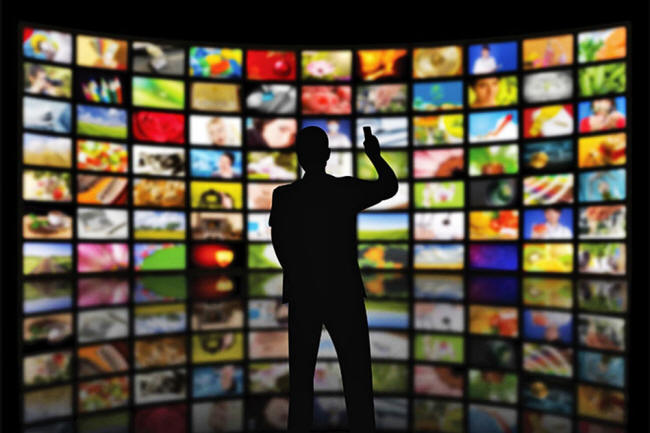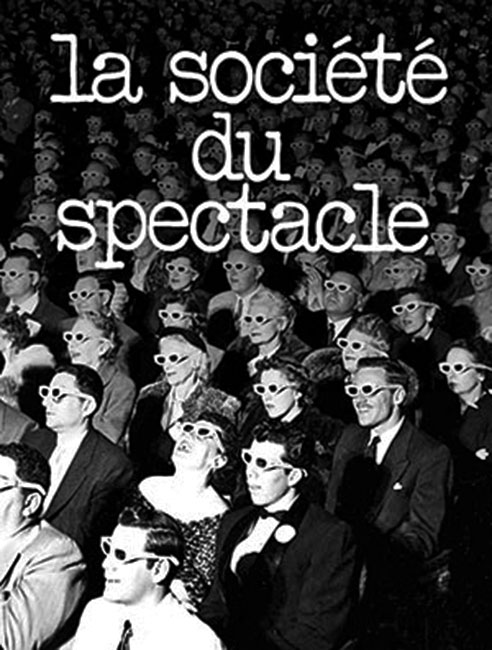|

by Jason Jeffrey
New Dawn 195
(Nov-Dec 2022)
from
NewDawnMagazine Website
|
Jason Jeffrey
holds an interest in a wide
range of subjects including geopolitics, metapolitics,
parapolitics, hidden history, spirituality, health,
Gnosis, metaphysics and esotericism. He can be contacted
at
jason.jeffrey88@pm.me. |

In the 1960s, a French intellectual came up with a novel theory on
life in the 20th century.
The basis of the theory was that in modern
capitalist consumer societies like France, the United States and the
West in general, authentic life had been replaced with its
representation.
According to
Guy Debord (1931-1994), we now
live in societies in which individuals no longer actually experience
events, but in which all action is instead conducted through the
represented image.
He called this "The Society of the Spectacle"
(the work outlining his theory was published in French as La
société du spectacle in 1967).
Images, Debord said, have supplanted genuine
human interaction...
Debord argued that the history of social life can
be understood as,
"the decline of being into having, and having
into merely appearing."
In consumer society, social life is not about
living, but about having; the Spectacle uses the image to convey
what people need and must have.
A founding member of the radical Situationist International,
Debord's descriptions of human social life subsumed by technology
and images are prophetic in light of the internet age now upon us.
The Spectacle is much greater than marketing and TV images.

Debord argued that everything, men and women,
once experienced directly, our ties to the natural and social
worlds, had been incorporated into the Spectacle - a vast
simulacrum - to be sold and fed back to us.
Doomed to be simply passive consumers inside the
Spectacle, men and women inescapably reinforce its dominance
by giving it attention.
The sun never sets, Debord dryly noted,
"on the empire of modern passivity."
And in this passive state, we surrender ourselves
to the Spectacle.
In his 1988 follow up
Comments on the Society of the Spectacle,
Debord introduced the idea of the "integrated Spectacle," the most
hazardous and commanding form of Spectacle, which he posits operates
today.
This enlarged Spectacle is associated with
liberal democracies marked by incessant technological development
and a state of general secrecy.
Society is governed and managed by 'experts' who
invoke the terror or health threat to keep spectacular
society in a constant state of fear and tension...
When we look back on our history, even from inside the Spectacle,
we sometimes identify works of literature, art or cinema that
accurately describe the reality of this modern world.
One such breakthrough came in the form of the
1976 movie 'Network'
about a fictional TV network that airs almost anything for ratings.
Written by Paddy Chayefsky and directed by Sidney Lumet, Network
won four Academy Awards and was selected for preservation in the
United States National Film Registry by the Library of Congress as
being "culturally, historically, or aesthetically significant."
This movie forecast the direction in which the Spectacle was
taking the world:
news as entertainment, soulless consumerism,
selfish corporate interest, borderless liberal globalism,
unscrupulous mainstream media antics.
News, in Network, is a business,
and facts will bend to it...
This is told, explicitly, in the climactic scene,
when the head of the network's parent company, Arthur Jensen,
speaks to Howard Beale, the disenchanted news reader.
"There are no nations," Jensen tells Beale.
"There are no peoples. There are no Russians.
There are no Arabs. There are no third worlds. There is no West.
There is only one holistic system of systems,
one vast and immane, interwoven, interacting, multivariate,
multinational dominion of dollars."
Everything is now determined by television; it
can dictate geography.
He looks into Beale's bewildered face and tells
him:
"The world... is a business."
Jensen's rant continues.
"You get up on your little twenty-one-inch
screen and howl about America and democracy. There is no
America. There is no democracy.
There is only IBM and ITT and AT&T and
DuPont, Dow, Union Carbide, and Exxon.
Those are 'the nations of the world'
today..."
Now we can include on that list,
That night, in the movie, Beale goes on air to
preach the corporate doctrine of Jensen:
"What is finished is the idea that this great
country is dedicated to the freedom and flourishing of every
individual in it.
It's the individual that's finished. It's the
single, solitary human being that's finished. It's every single
one of you out there that's finished.
Because this is no longer a nation of
independent individuals.
It's a nation of some two-hundred-odd million
transistorized, deodorized, whiter-than-white, steel-belted
bodies, totally unnecessary as human beings and as replaceable
as piston rods.
"Well, the time has come to say,
'Is de-humanization such a bad word?'
Because good or bad, that's what is so.
The whole world is becoming humanoid -
creatures that look human, but aren't. The whole world, not just
us. We're just the most advanced country, so we're getting there
first.
The whole world's people are becoming
mass-produced, programmed, numbered,
insensate things..."
|



